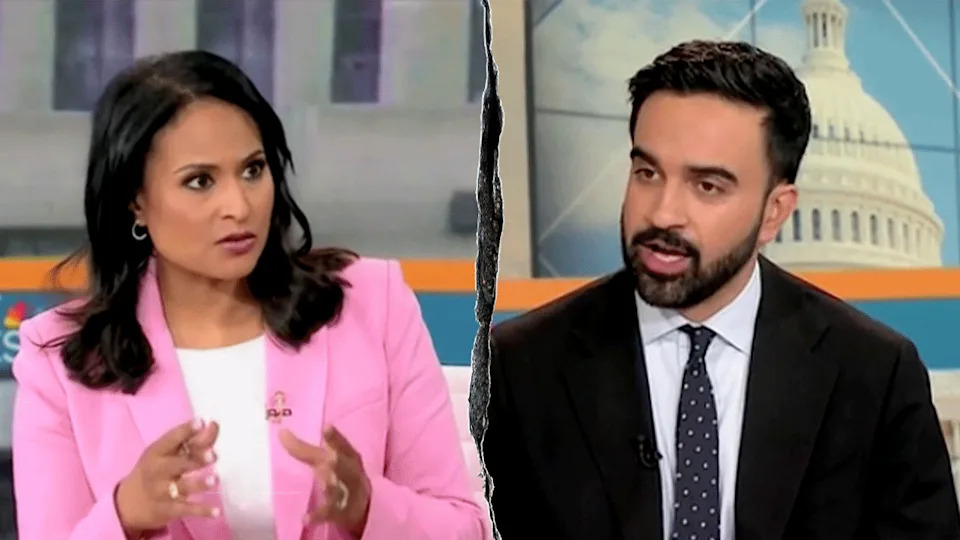Recent scrutiny has centered on New York Assembly member Zohran Mamdani following his appearance on NBC, where he addressed the controversial phrase “Globalize the Intifada.” The interview has ignited a debate, raising complex questions about free speech, political discourse, and the interpretation of such charged language. Mamdani’s responses have been dissected and analyzed, prompting widespread discussion across various platforms.
The Core of the Controversy: Globalize the Intifada
The phrase “Globalize the Intifada” itself carries significant weight and historical context. The term “Intifada” refers to Palestinian uprisings against Israeli occupation. Its globalization, therefore, suggests expanding this resistance beyond its geographical origins. According to Dr. Laila Al-Marayati, a professor of Middle Eastern Studies at UCLA, “The interpretation of ‘Globalize the Intifada’ is highly contested, with some viewing it as a call for broader solidarity and others perceiving it as a veiled endorsement of violence.” This ambiguity is at the heart of the current debate.
Mamdani’s Stance and Justification
During the NBC interview, Mamdani was pressed to clarify his position on the phrase. While he acknowledged the sensitivities surrounding it, he also emphasized the importance of allowing diverse perspectives within political discourse. “Silencing voices, even those expressing controversial viewpoints, ultimately undermines the principles of free speech,” Mamdani stated during the interview, a clip of which has been widely circulated on social media. He argued that open dialogue, even when uncomfortable, is essential for a healthy democracy.
Legal and Ethical Considerations
The controversy also raises important legal and ethical considerations regarding the boundaries of free speech. While the First Amendment protects the right to express even unpopular opinions, there are limits, particularly when speech incites violence or hatred. A legal analysis published by the American Civil Liberties Union (ACLU) notes that “the line between protected speech and incitement is often difficult to draw, requiring a careful consideration of context and intent.” The ACLU report further emphasizes that restrictions on speech should be narrowly tailored to address specific harms, avoiding broad prohibitions that could stifle legitimate political expression.
Public Reaction and Political Fallout
The public reaction to Mamdani’s interview has been sharply divided. Supporters argue that he is being unfairly targeted for expressing his views, while critics accuse him of promoting anti-Israel sentiment. Several political figures have weighed in on the controversy, with some calling for Mamdani’s resignation. According to a recent poll conducted by the Empire State Political Institute, 45% of New York voters believe Mamdani should apologize for his remarks, while 38% support his right to express his views freely. The remaining 17% are undecided.
The Broader Implications for Political Discourse
This incident underscores the challenges of navigating complex and emotionally charged issues in the public sphere. It highlights the need for nuanced discussions that acknowledge diverse perspectives while condemning hate speech and violence. As noted in a 2023 report by the Institute for Strategic Dialogue, “The rise of social media has amplified both the reach and the intensity of political discourse, making it more difficult to engage in constructive dialogue across ideological divides.” The report recommends promoting media literacy and critical thinking skills to help individuals better evaluate information and engage in respectful debate.
The situation also has implications for the Democratic party. According to political analyst, Maria Sanchez, “The Democratic party is facing increasing pressure to address concerns about anti-Semitism, while also upholding its commitment to free speech and social justice. How the party navigates this tension will be crucial for its future.”
Moving Forward: Fostering Constructive Dialogue
The controversy surrounding Zohran Mamdani’s NBC interview serves as a reminder of the importance of fostering constructive dialogue on sensitive issues. It requires a commitment to listening to diverse perspectives, engaging in critical thinking, and upholding the principles of free speech while condemning hate speech and violence. The path forward involves promoting media literacy, encouraging respectful debate, and seeking common ground where possible. The debate regarding the phrase “Globalize the Intifada” is not likely to disappear soon, but hopefully, future discussions can be approached with greater understanding and empathy.

